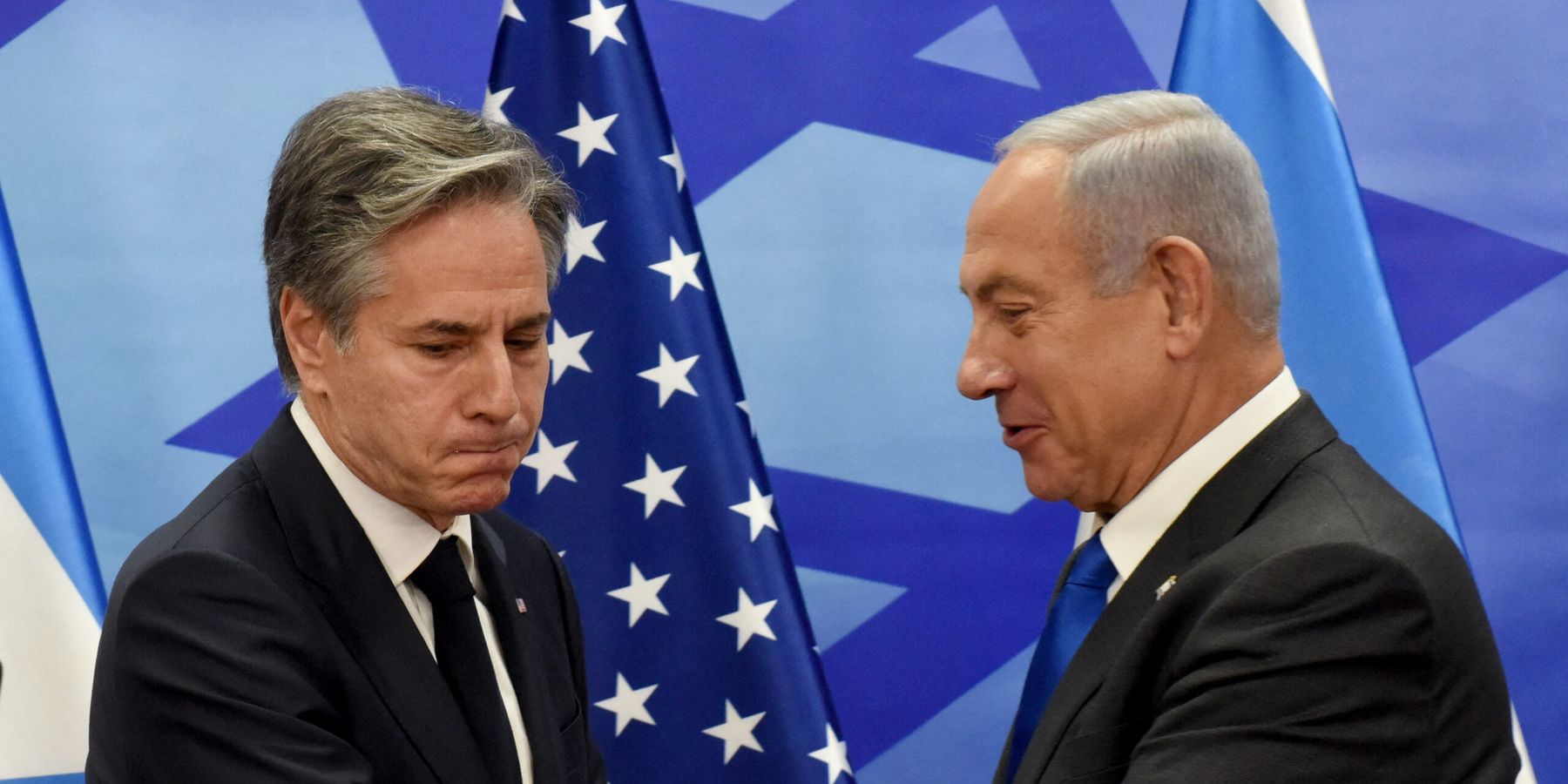State Department leadership is ignoring a recommendation from an internal panel to stop giving weapons to several Israeli military and police units due to credible allegations of serious human rights abuses, according to a major new report from ProPublica.
The alleged violations, which occurred before the Oct. 7 Hamas attacks, include extrajudicial killings, sexual assault of a detainee, and leaving an elderly Palestinian man to die after handcuffing and gagging him. Secretary of State Antony Blinken received the recommendation in December but has yet to take action to prevent the units involved from receiving American weapons.
The bombshell ProPublica report comes just two weeks after White House spokesperson John Kirby insisted to reporters that the Biden administration has yet to see credible allegations of Israeli human rights abuses, despite widespread concerns from human rights groups and aid organizations.
“The State Department has a process, and to date, as you and I are speaking, they have not found any incidents where the Israelis have violated international humanitarian law,” Kirby said. “Unless you think we don't take this seriously, I can assure you that we do.”
“The State Department has looked at incidents in the past and has yet to determine that any of those incidents violate international humanitarian law,” he continued.
The report gives remarkable insight into the ways in which Israel receives unique treatment from U.S. officials in addition to its already privileged status under U.S. law. As ProPublica notes, allegations of Israeli human rights abuses are investigated by a special panel known as the Israel Leahy Vetting Forum (ILVF).
The ILVF’s title is a reference to the Leahy Laws, which prevent units of foreign security services from receiving U.S. weapons if they are found to have committed significant violations of international law. For most states, this vetting process is straightforward and sometimes results in sanctions against specific units, with little input from top-level officials.
But not for Israel. Unlike with other states, Israeli officials are consulted by the ILVF during the vetting process. If the panel finds credible evidence of abuses, then their recommendation is passed onto a group of higher-level officials in Middle East and arms transfer policies. It’s there that the allegations are usually blocked, according to Josh Paul, a former State Department weapons transfer official who resigned in protest last year.
“It's at that point, typically, that the process grinds to a halt, whether it is from the leadership of a bureau involved in the process or sort of a higher level guidance that, ‘Hey, this isn't gonna go anywhere. Let's move on to the next thing,’” Paul told RS last year.
Remarkably, the recommendations revealed by ProPublica made it past this step, meaning that powerful State Department officials endorsed the sanctions before they reached Blinken’s desk. This suggests a greater level of internal anger over alleged Israeli abuses — and a greater willingness among top officials to flout U.S. law — than has previously been reported.
The State Department told ProPublica that the allegations require a “careful and full review,” adding that “the department undergoes a fact-specific investigation applying the same standards and procedures regardless of the country in question.”
The recommendations come as a growing number of Western states have cut off arms sales to Israel due to its actions in Gaza, where a months-long Israeli campaign against Hamas has left more than 34,000 Palestinians dead and many more on the brink of famine. Belgium, Canada, Italy, the Netherlands, and Spain have all cut off arms sales, and British government lawyers have reportedly recommended to their leadership that it should do the same.
U.S. lawmakers are also scrutinizing sales to Israel following its actions in Gaza. Rep. Gregory Meeks (D-N.Y.) — the top Democrat on the House Foreign Affairs Committee — has placed an informal hold on a long-term deal that would send F-15 fighter jets to Israel.
- State Dept: No evidence Israel violating laws with US weapons ›
- Bombs, guns, treasure: What Israel wants, the US gives ›
















